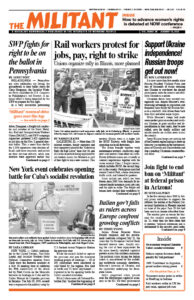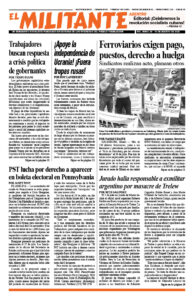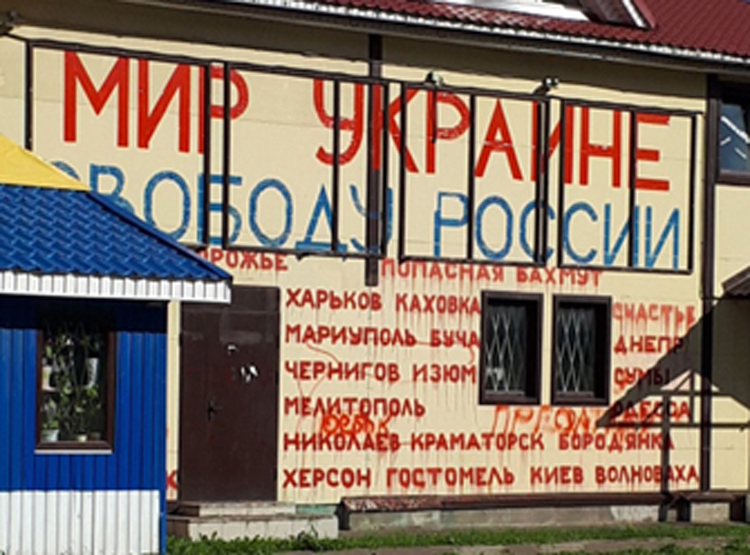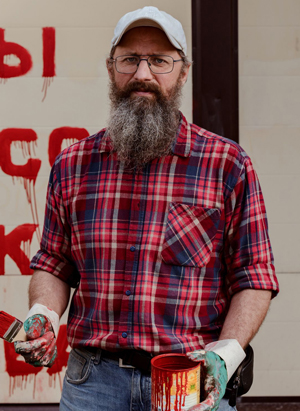It is now more than five months since Russian President Vladimir Putin sent tens of thousands of troops storming into Ukraine to overthrow the elected government, seize the country and obliterate Ukraine as a nation.
Ukrainian forces have resisted courageously and, despite Moscow’s overwhelming advantage in population and firepower, have fought the Russian forces to a standstill. And driven them back from Kyiv and other major targets.
While Moscow’s troops had made some modest gains in eastern and southern Ukraine, at great sacrifice and demoralization in their ranks, they’re now stalled, save for deadly artillery and missile attacks on civilian areas across the country.
Some Russian troops are moving out of the Donetsk region hoping to shore up Moscow’s occupation in the southern regions of Kherson and Zaporizhzhia and stop a pending Ukrainian counteroffensive there.
Since acquiring longer-range weaponry over the last few weeks, Ukrainian forces have liberated 44 villages and towns in the Kherson region. Posters in Russian-occupied Kherson continue to appear on city walls demanding, “Occupier, leave now!”
The bodies of 53 Ukrainian prisoners of war were found incinerated and another 75 badly injured after an explosion in the Olenivka prison in the Russian-occupied Donetsk region July 29. There were no casualties among prison guards or Russian forces.
Ukrainian President Volodymyr Zelensky called the attack “a deliberate mass murder of Ukrainian prisoners of war” by Moscow-backed forces. The Kremlin claims the blast was caused by a Ukrainian rocket attack that it says was aimed at preventing the prisoners from testifying against their own government’s alleged war crimes.
The captured soldiers were mainly from the Azov Regiment. They had laid down their arms in mid-May under orders from Kyiv after defending themselves and hundreds of civilians in the fortified basement of a huge steel mill during Moscow’s murderous siege of Mariupol. They are regarded as national heroes in Ukraine. Kyiv officials had arranged a prisoner swap for some of them and were trying to liberate more.
Rightist politicians in Moscow have called for charging the Azov Regiment members as “neo-Nazis,” and demand they face death sentences.
“Only the solidarity of Ukrainian, Russian and Belarusian toilers and their class allies here and around the world can get Russian troops out of all of Ukraine,” Alyson Kennedy, Socialist Workers Party candidate for governor of Texas, told the Militant Aug. 2. “However, sanctions imposed on Moscow are an obstacle, not a help, as they fall hardest on working people, providing a handle for Putin to claim Ukraine, not his regime, is responsible for what faces them.”
Putin is pursuing his war of attrition, anticipating that energy shortages and the deepening economic disruption will convince Washington and other imperialist powers to press Kyiv’s leaders to make territorial concessions to Moscow and end the defense of their country.
Protests in Russia despite crackdown
“Hardly any anti-war protest takes place in Russia today without harassment or prosecution by the police and the FSB,” Moscow’s political police, the Kharkiv Human Rights Protection Group reported July 31. The Kremlin arrested more then 15,000 protesters at the start of the war.
Nonetheless, the Kharkiv organization reports weekly that people across Russia find ways to defy the authorities and express their opposition to Putin’s slaughter. And they find sympathy and support from others.
The human rights group in late July listed numerous people who displayed signs reading, “No to the war!” or “Peace to Ukraine!” or “Putin, resign!” — from St. Petersburg to Moscow and from the North Caucasus to Siberia. Some were detained by police and charged with “discrediting” the Russian army and fined, and most of them quickly released.
Marina Ovsyannikova, a former Channel One TV editor, left the country after being briefly detained when she interrupted Russia’s most-watched evening news broadcast in March to hold up an anti-war sign. She returned to Russia last month and was again detained briefly after a solo protest outside the Kremlin. Russian authorities “are trying to denigrate me,” she told the Moscow Times.
“Since I’m back in Russia I’m using it as an opportunity to express my anti-war position, but we’ll see what happens next. Anyway I’m not going to leave the country,” she said.
Despite local police charging Dmitry Skurikhin several times, his village shop in northwest Russia remains emblazoned with “Peace to Ukraine! Freedom to Russia!” In blood-red letters it lists numerous Ukrainian cities. “I want to draw society’s attention to the towns and cities of Ukraine that are suffering today,” he was quoted in the Kharkiv Human Rights group’s newsletter July 19, “to show how many of them there are.”
“My neighbors fully support me.”



